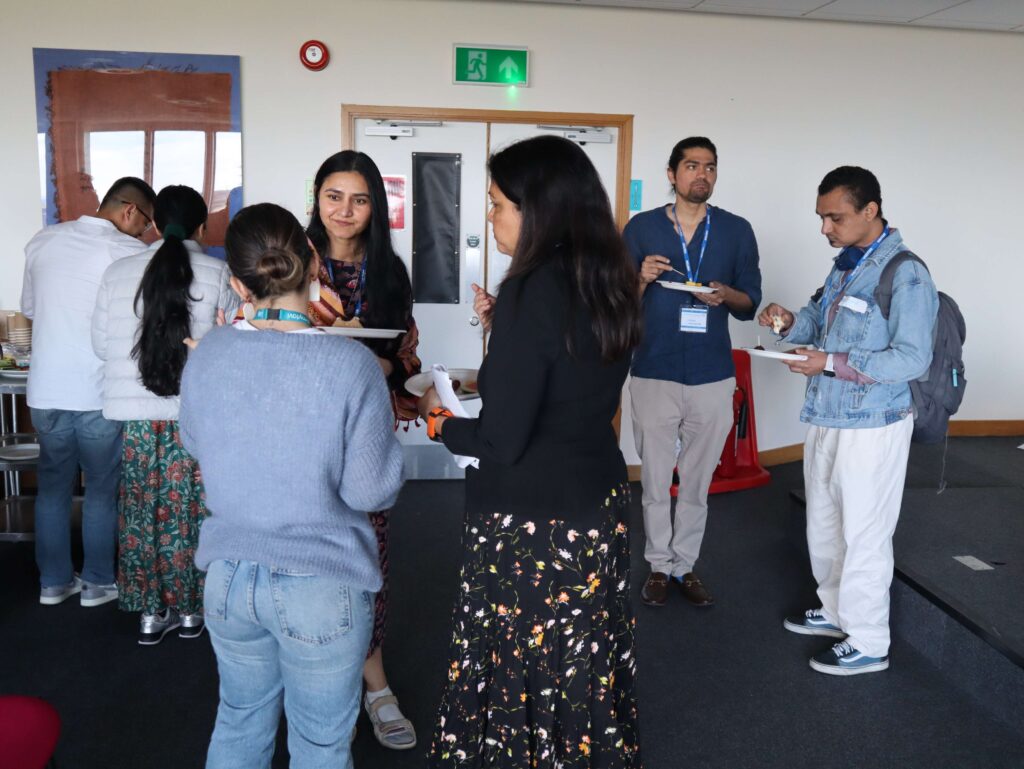
News
Trust hosts open conference: Refugee Care, Our Home
In celebration of the 26th anniversary of Refugee Week, our Trust partnered with the University of Essex Centre for Trauma, Asylum and Refugees (CTAR) to host an open conference. The event was organised by Specialist Systemic Psychotherapist & Supervisor Nsimire Aimee Bisimwa and Deputy Co-Director of CTAR Zibiah Loakthar. Held at the Tavistock Centre, the event brought together participants from around the world to listen to the lived experiences of refugees, explore different case studies and reflect on this year’s theme: ‘our home’.
Professor Renos Papadopoulos, founder of CTAR, kicked off the event by discussing the complexities of this year’s Refugee Week theme. The term ‘home’, as he emphasised, is multidimensional and multifaceted – referring to a spiritual, educational, cultural or even geographic space. He added that ‘home’ is more than mere bricks and mortar, it is a space in a particular time which allows for relationships to be developed; somewhere which evokes strong emotions and creates a specific reality.

Using the example of Palestinian refugees in the West Bank, the second talk, by Nizar Alayasa, Devora Neumark and Stephanie Acker, discussed how home beautification can be used to create a sense of hope. They described the tendency of those in the Al-Azza and Dheisheh camps to intricately decorate their surroundings with various plants – creating green spaces which not only offer a place of relaxation and stability, but also a sense of personal agency at a time when they lack control. These spaces also help them maintain hope and reimagine the future.
Consulting Psychologist Nataliia Zadesenets gave a talk on Ukrainian artist Iryna Potapenko and her ‘Basement Chronicles’ art series. Potapenko began the project in 2022 while hiding from shelling in the basement of her house, due to the ongoing Ukrainian-Russian conflict. On Facebook, she would upload artistic drawings and diarise the reality of being in the basement. These drawings, as Potapenko explained, “helped [her] cope” with the fact that her life since the war had changed. Art, in this case, provided Potapenko with solace during a time of great uncertainty and offered a space to deal with the trauma of war.

Following these case studies, the audience heard two anecdotal talks by Safeguarding Lead Lousie Baumberg and Humanitarian Taban Shoresh OBE.
Baumberg spoke about different theoretical and practical approaches to foster care when it involves separated young people. She began by quoting the first speaker Papadopolous, stating that when the foster carer and young person live together they bring their own histories, preconceptions and expectations to the relationship. Baumberg spoke of the social and cultural differences between herself and her foster children, and of the way ‘reflective fostering’ helped them to overcome these challenges.

Shoresh spoke about her experience as a refugee from Kurdistan. Her family were persecuted by Saddam Hussein’s regime due to her father being a political activist. She described the harrowing experience of being arrested and put in jail as a young child along with her mother after the regime’s forces stormed their home. She also shared some of the difficulties she faced when she eventually sought asylum in the UK, such as overcoming language barriers, healing from the trauma of her past and going through an identity crisis. This experience, as she explained, was the impetus for her founding The Lotus Flower Charity which cares for displaced women and girls.
Nsimire Aimee Bisimwa, course lead for our Master’s degree in Refugee Care (M35) and Specialist Systemic Psychotherapist, which is delivered in partnership with the University of Essex, described the event as inspiring and powerful: “I felt energised and nourished by the wide range of participants and guest speakers, ranging from people with lived experience, service providers, clinicians, academics, researchers, students, human rights activists and community workers. They all highlighted the healing power of supporting refugees, asylum seekers and forcibly displaced people to create new ‘homes’ in the countries where they seek sanctuary by connecting to the human being in the refugee person.” Bisimwa added: “the conference called for a collective duty of care, compassion and empathy for all human beings to make the world a safe space for all”.
My highlight of the day was when I spoke to a young asylum-seeker who attended the conference and gave me this feedback: ‘I have suffered a lot in the UK and lost hope for my future. Coming here today has made me realise that there are still people who care about us. I am leaving feeling loved, hopeful and alive.’

